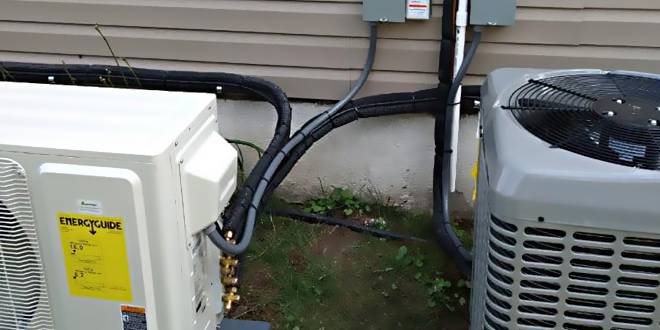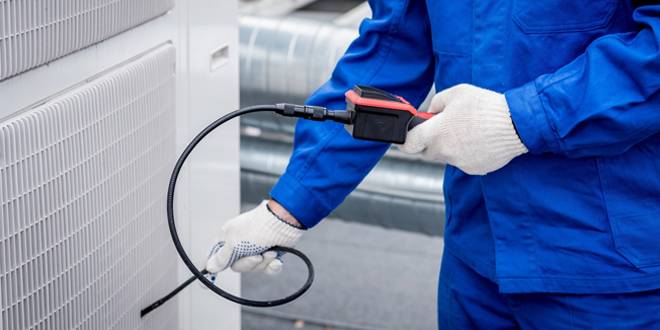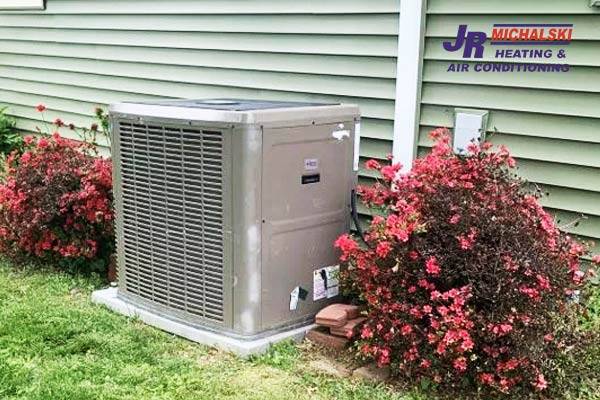
In the quest for a comfortable home environment, one of the most significant decisions homeowners face is the replacement of their air conditioning (AC) system. While the initial thought of AC replacement can be daunting, particularly concerning upfront costs, there’s an often overlooked aspect: the potential for substantial long-term savings. This article delves into the financial implications of replacing your AC unit, shedding light on not just the immediate costs but, more importantly, the long-term savings a new, efficient HVAC system can offer.
As energy prices continue to fluctuate and old AC systems lose their efficiency, the question isn’t just about enduring another hot summer; it’s about making a financially sound decision that benefits you in the years to come. The modern HVAC market offers systems boasting impressive energy efficiency, translating into significant savings on utility bills and maintenance heating and cooling costs.
In the following sections, we’ll explore the various costs associated with AC replacement, how energy efficiency factors into your savings, and the long-term financial benefits. We will also provide guidance on selecting the right HVAC system for your home. Whether you’re replacing an outdated unit or considering an upgrade for better efficiency, understanding these aspects will help you make an informed decision, ensuring comfort and cost-effectiveness for your household.
Understanding the Costs of AC Replacement
Replacing an air conditioning system is not just a matter of picking a new unit; it involves understanding the various costs that contribute to the overall investment. In this section, we break down these costs to provide a clearer picture of what goes into an AC replacement.
Cost of the AC Unit Itself
The price of an air conditioning system varies widely depending on the type (split, window, or central air conditioning), brand, capacity, and efficiency rating. Generally, higher efficiency units cost more upfront but offer greater savings in the long run.
Installation Costs
Professional installation is crucial for the efficiency and longevity of your HVAC system. Installation costs can vary based on the complexity of the system, the size of your home, and the need for additional ductwork or modifications.
Additional Components and Services
Sometimes, replacing an AC unit might require additional components like thermostats or services like duct cleaning or sealing. These can add to the initial cost but are essential for optimal performance.
Potential Hidden Costs
Be aware of potential hidden costs. This may include electrical upgrades, permits, or fees associated with disposing of the old unit. It’s important to discuss these possibilities with your HVAC contractor upfront.
Financing Options
Many HVAC companies, including JR Michalski Heating & Air Conditioning, offer financing options to spread out the costs. This can be a valuable way to manage your budget while ensuring you get the best system for your needs.
Evaluating Energy Efficiency and Savings

One of the most compelling reasons to replace an old AC unit is the potential for energy savings. Newer models are designed with energy efficiency in mind, which not only benefits the environment but also your wallet. Here’s how to understand and evaluate these savings:
Understanding SEER Ratings
The Seasonal Energy Efficiency Ratio (SEER) rating is a key factor in determining an AC unit’s efficiency. The higher the SEER rating, the more efficient the unit. Modern air conditioners are required to have a SEER rating of at least 13, with high-efficiency models reaching upwards of 20 SEER.
Calculating Energy Savings
Energy savings can be estimated by comparing the SEER rating of your new unit to your old one. A higher SEER rating typically leads to lower energy consumption, resulting in reduced energy bills.
Impact on Utility Bills
Upgrading to an energy-efficient air conditioner can significantly reduce your monthly utility bills. The exact savings depend on your local climate, usage patterns, and electricity rates.
Reducing Carbon Footprint
Beyond the financial aspects, upgrading to an energy-efficient system contributes to a lower carbon footprint, aligning with growing environmental concerns and sustainability goals.
Longevity and Maintenance Costs
Newer, more efficient units often come with the added benefit of longer life spans and lower maintenance costs, further enhancing long-term savings.
By carefully selecting an energy-efficient HVAC system with a high SEER rating and understanding its impact on your energy consumption, you can make an informed decision that balances initial costs with long-term savings.
Long-Term Financial Benefits

Investing in a new AC system goes beyond just the immediate improvement in air quality and comfort. It’s also a strategic financial decision that can offer significant long-term benefits. Here’s a closer look at these advantages:
Reduced Energy Bills Over Time
A more efficient AC system requires less energy to cool your home, leading to lower energy bills. Over time, these savings can add up to a substantial amount, offsetting the initial investment in the new system.
Increased Home Value
Modern, efficient heating and cooling equipment can increase the value of your home. Potential buyers often look for homes with up-to-date HVAC systems, viewing them as a sign of a well-maintained property.
Fewer Repair and Maintenance Costs
New AC systems come with warranties and are less likely to need frequent repairs compared to older units. This reduces the likelihood of unexpected repair costs and the inconvenience of system breakdowns.
Energy Rebates and Tax Credits
Some energy-efficient AC systems may qualify for rebates or tax credits, further reducing the overall cost. It’s important to research local incentives and discuss options with your HVAC provider.
Predictable Budgeting
With newer systems, you can more easily predict your HVAC expenses. The stability of having a system that runs efficiently and with fewer repairs allows for better budget management in the long term.
Understanding these financial benefits helps in appreciating the true value of an AC replacement. It’s not just a one-time expense but an investment into your home’s efficiency, comfort, and future financial stability.
Making the Right Choice: Tips for Selecting a New HVAC System

Selecting the right HVAC system is a crucial decision that impacts your home’s comfort, energy efficiency, and budget. To ensure you make an informed choice, consider these detailed tips:
Understanding Size and Capacity
The right size of an HVAC system is essential. An oversized system can cause frequent cycling, leading to inefficiency and wear, while an undersized system won’t effectively cool your home. A professional load calculation, considering factors like home size, insulation levels, and window types, is vital for determining the appropriate capacity.
Energy Efficiency: A Deeper Look
Focus on units with a high Seasonal Energy Efficiency Ratio (SEER) rating. Understand that while the initial cost might be higher, the long-term savings on energy bills can be substantial. Look for ENERGY STAR® certified models, which signify high efficiency.
Advanced Features for Enhanced Comfort
Modern AC systems offer advanced features like programmable thermostats, which allow you to schedule temperature changes to match your daily routine, reducing energy use when you’re not home. Features like variable-speed motors can provide more consistent cooling and quieter operation.
Brand Reputation and Warranty Considerations
Research different HVAC brands and read customer reviews to assess reliability and performance. A strong warranty offers peace of mind and can protect against unforeseen repair costs. Some brands may offer extended warranties or guarantees for certain components.
Installation: The Crucial Step
The quality of installation affects the system’s efficiency and lifespan. Ensure your HVAC contractor is licensed, insured, and experienced. Ask for references or case studies of their previous installations.
Adapting to Your Local Climate
Different climates require different HVAC features. In humid areas, look for systems with good moisture control. If you live in a region with mild winters, a heat pump might be a more efficient option than traditional heating and cooling systems.
Long-Term Maintenance and Service
Consider the maintenance requirements of the system. Regular maintenance is essential for efficiency and longevity. Choose a brand and installer that offers reliable after-sales service and maintenance plans.
Seeking Professional Advice
Don’t hesitate to consult with HVAC professionals like JR Michalski Heating & Air Conditioning. They can offer tailored advice based on your specific home layout, local climate, and budget requirements.
By carefully considering these aspects, you can select an HVAC system that not only meets your immediate comfort needs but also aligns with your long-term financial goals and lifestyle preferences.
Ready to Upgrade Your Comfort?
Take the first step towards a more efficient, comfortable home with JR Michalski Heating & Air Conditioning. 🏡🌟 Experience unparalleled service and quality in HVAC solutions. Contact us today – your journey to a cooler, cost-saving summer starts here! ☀️💰✅

